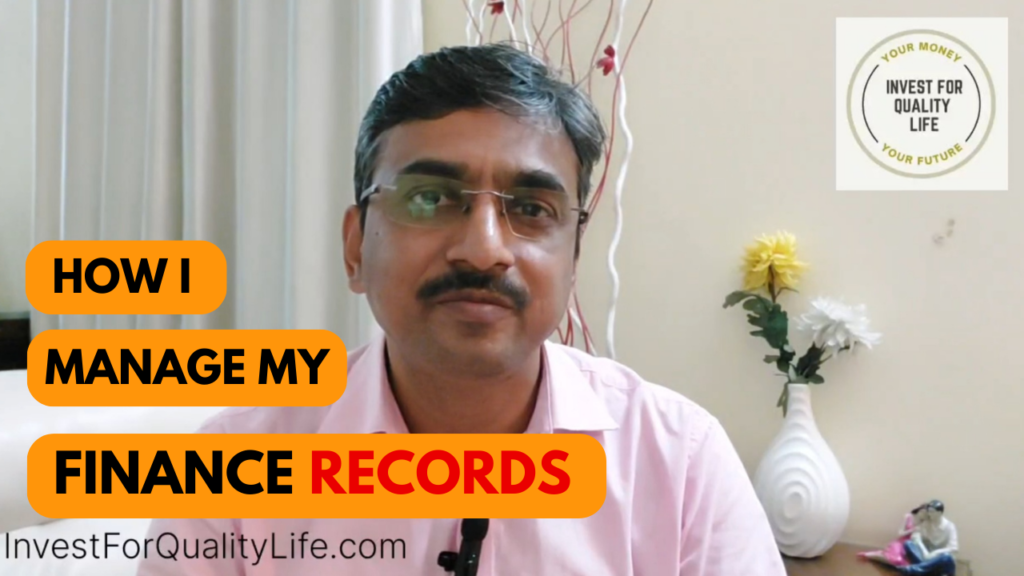Updated On – 08 Feb 2024
In India, earning money is more than a struggling affair and many are spending whole life to save some amount for money for future security. This earning of money is taking most of our precious time of life and to save further we are doing many compromises with our wishes. By doing all, still we are not able to save as much which can give full proof security to self and family members. Due to this, people are working just for money till their age 70 or sometimes 70+ of age.
This hard-earned saved money we are investing in some of the investment plans just to get good or say the best returns so money can continually enhance faster and give us financial security.
But just to get best returns are we risking our hard-earned saved money?
To get the answer we need to look into the investment pattern in India was and now what is in the present time.
How was the investment pattern in India?
Let’s start with around 20-25 years back, when people were investing all their savings mainly in Nationalised Banks, Life insurance policies, small saving schemes of Post Office, PPF and RBI schemes. At that time many of such schemes were offering to double the money in 5 years which was around more than 15% interest rate and was so lucrative and same time as these were run by Government & Semi-Government organizations, so investing in such schemes were very much safe and people use to earn a good amount of money by their saved money. Even after retirement, many people are living life with these earnings only.
On other hands, the loan interest rates were very high so people were buying assets either home, land, plot or any such assets by their own saved liquid money and avoiding the big burden of loans of higher interest rates. To buy a property people use to shall out all their savings, jewellery and if still, they were not able to meet the requirement of funds then they were using loan facilities.
From where investment patterns start changing?
Slowly the interest rates of secured Govt investment schemes were narrowed down from 15% to 9%. Even then also people are getting good returns on investments and just happy with the returns. But this was a time when common men started diverting their hard earn savings towards the Stock market to get more returns. Many tools like SIP, Mutual Funds of stock market were encouraging very small investors which is a general public to invest in the stock market. This was the time when very less amount of people were diverted towards stock market.
When it starts speeding up?
After 2015, the interest rate of investment schemes were drastically dropped down and reached to the lowest level. As the interest rates are not able to beat even inflation so more n more people started putting their hard earn savings into the stock market via SIP & Mutual Funds to get the best returns. The track history of SIP & Mutual funds for the previous 6-8 years was reasonably good so the diversion of money from small investment schemes to the stock market was very much faster and during this 6 years period starting from 2015 till the year 2019 end ( just before Covid-19 pandemic) it reaches to a very good levels.
Although everyone knows how the stock market is risky, still just by seeing the past history of SIPs & Mutual funds, people have started shifting their money from well-secured investments to unsecured investment options of the stock market.
What was the government prospective about Investment Schemes?
Since long, government has not reviewed their investment tools nor introduced more such investment tools to attract the middle class or common men who have some savings after expenses. The government thought process may be to improve the growth of the economic condition of the country as the money rolling have been drastically decreasing in the markets. To increase the money rolling, cheap money has been introduced by offering low interest rate loans so people will take more n more loans and circulate the money in the retail or local market. This has directly impacted secured investment schemes interest rate cut of banks, small saving schemes and other such investment tools. These policies are risking the future security of an individual citizen.
What is the Indian culture about Savings?
Indian culture is a little different as compared to the other countries especially about the loans, hence the loan offers were fails to boost up the economy. The Indian economy has been mainly dependent upon people’s earnings. People buy the things when they feel their earning is enough to take care of the purchase. If their earnings are not good enough then they don’t purchase or take loans.
In this whole process, the normal average class people’s money has already been diverted into the risk market like the stock market and still shifting due to discouraging schemes of Banks and small saving schemes. No one can give a guarantee of Stock Market as it has its own way of functioning. Even no government has control over ups & downs of the stock market.
Tax policies are discouraging investments for Savings?
On other side, the government tax policies are also discouraging saving especially the new tax regime. People who were investing in small saving schemes to get the benefit of tax under 80C, now not investing in such tools and diverting this very important money which should be for their future security are now moving to the stock market and risking their future.
India is a largely populated country and giving employment to 100+ crore population is very difficult and if a large population’s future will become unsecured then it will impact on the stress level of the people. In India, in 4-5 person family, only one is earning and doing care of their whole family. So encouraging security will help them & their dependent to survive in future especially in a difficult time and help them to depend upon self, not on government mercy.
Is the situation is Alarming?
By understating all, now it is alarming to all those who are diverting a large part of their hard-earned saved money in the stock market. The government may this realise little later but the main impact will be on normal citizens of the country. As an individual, everyone has to think twice before investing a large part of their savings into risk options.
Have we learnt anything from Covid -19 ?
Covid-19 pandemic is one of the best examples where many people have lost their jobs/ businesses / earning sources and due to a culture of saving many of them are surviving. No government can support you if you lost your earning source whether you had paid lakhs of rupees to the government as tax. So only your secured money can make you survive during such a difficult time like the Covid-19 pandemic.
What we should take care off ?
We need to understand the good habits of Indians which is “Saving”. This is the backbone of the Indian economy. It is very much helping to secure individual security and also helping the country’s economy during difficult times. So while investing we should take care of these
- Should not invest a large part of your savings in risk options.
- Do not fantasize about lucrative options of big returns.
- Make your financial position stronger by your savings.
- Invest monthly/regularly in secured schemes like PPF, Post office schemes, RBI schemes, reputed Bank Deposits and create your real Financial Security.
- Try to accumulate the Financial Security corpus so in any difficult time you and you family can survive for a long time.
Your seriousness towards savings and wise investing will help you to lead good confident life and also helps you in any difficult time. So be sincere about your money & Financial Security and invest wisely, track regularly, try to earn as much so you can and achieve the amount of your Financial Security corpus as quickly. This will bring a mental peace in your Life.
Read : Nine tools to build Social Security








